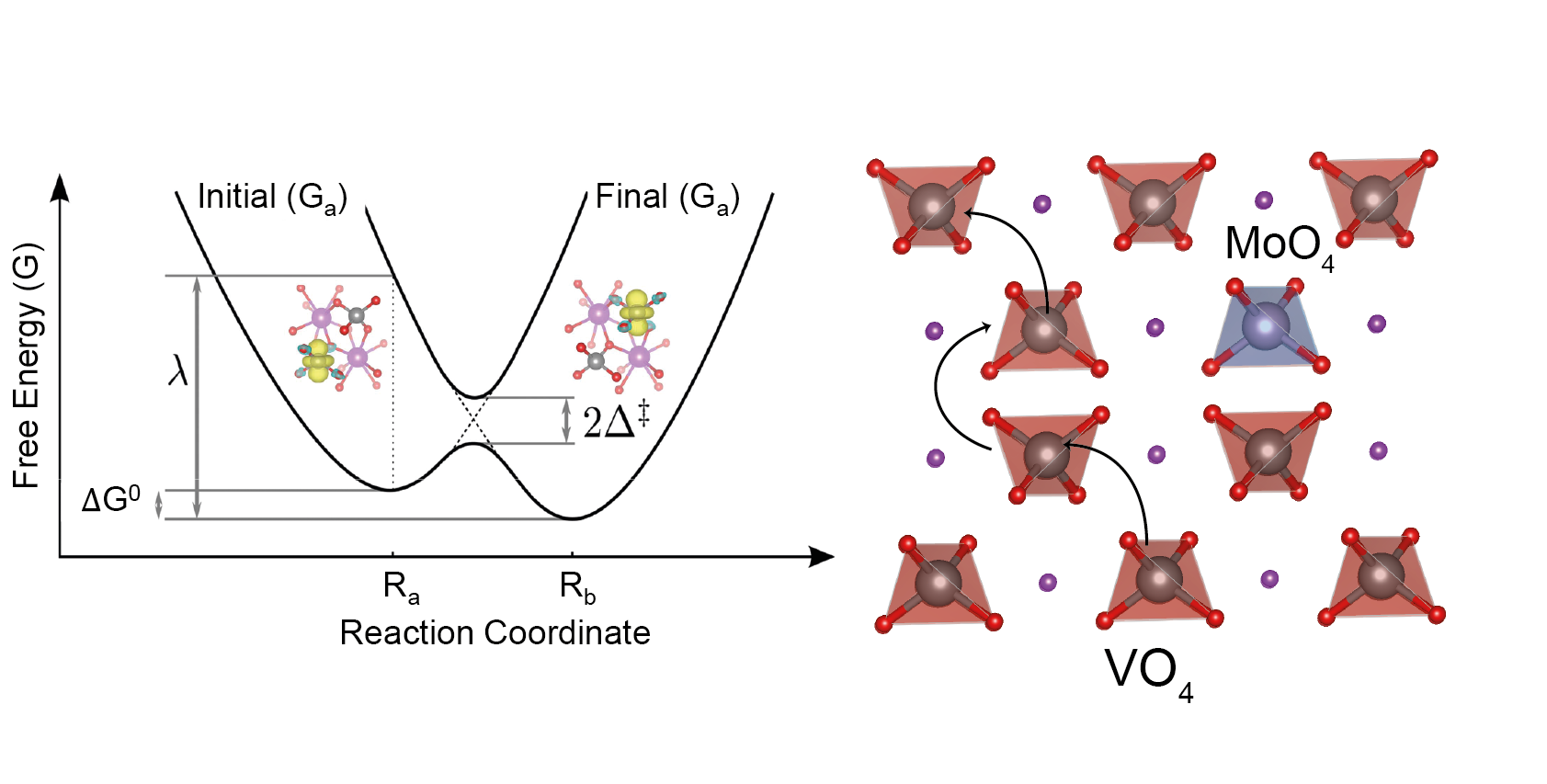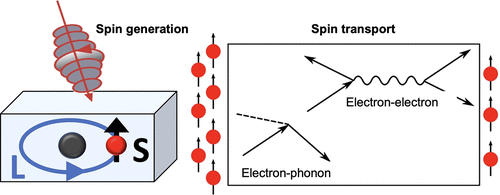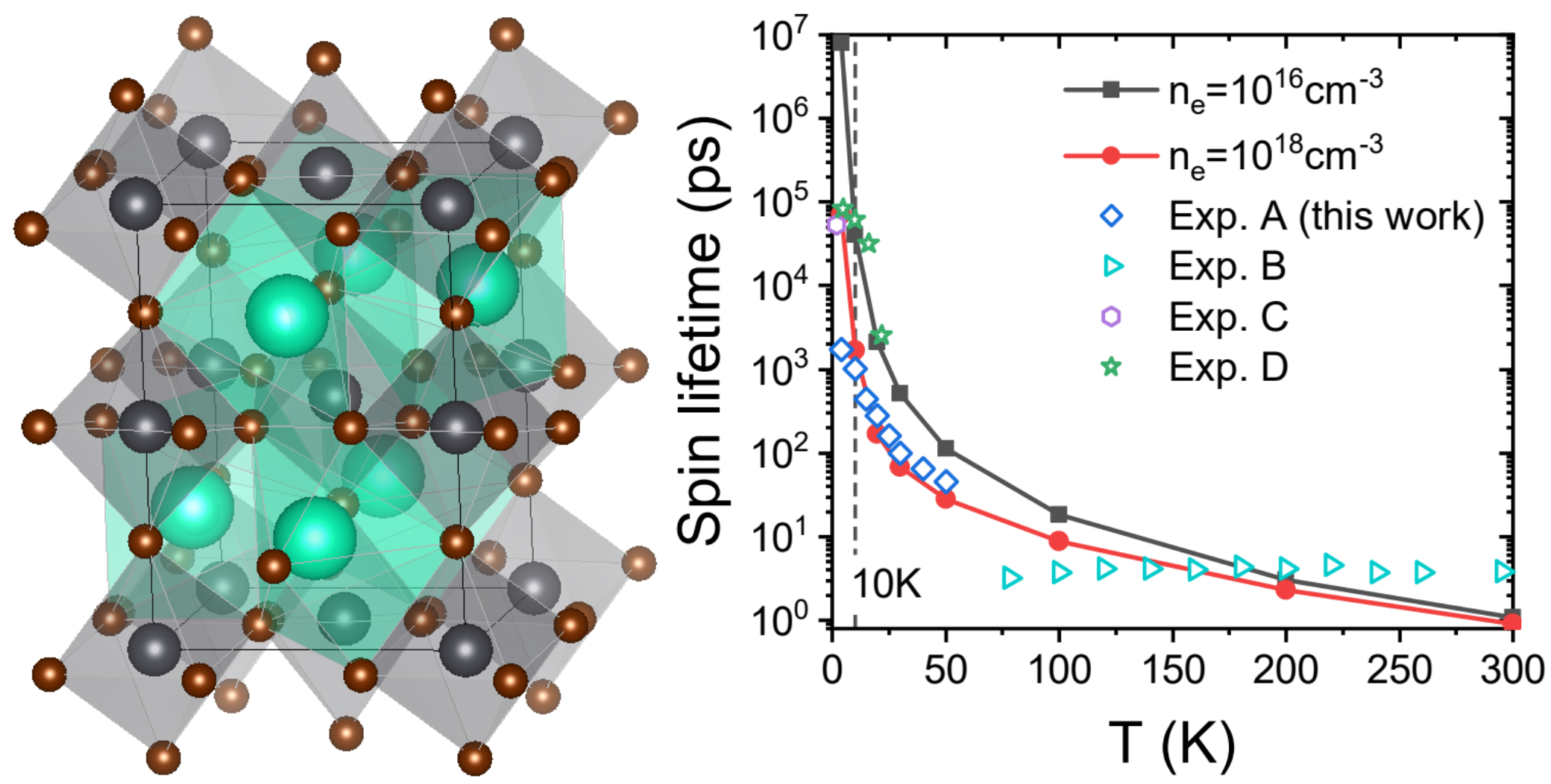Congratulations Feng and Prof. Ping on there new publication in Journal of Materials Chemistry A!
In this work we established a first-principles framework for polaron hopping mobility in anisotropic and doped metal oxides, by combining the generalized Landau-Zener theory with kinetic Monte-Carlo sampling. Within this method, we can obtain the hopping transfer rates that naturally recovers both the adiabatic and non-adiabatic charge transfer limit without any prior assumptions. We applied the newly developed constrained DFT method for solids which can obtain the electronic coupling between two polaron states and reorganization energies for hopping transfer. By coupling the kinetic Monte-Carlo sampling, we can sample all the hopping trajectories, and then compute the diffusion coefficient and hopping mobility based on the Einstein relationship. With this computational framework, we computed the polaron hopping mobility at presence of dopants/defects entirely from first-principles and investigated the effect of dopant-polaron interactions on the polaron hopping mobility.
F. Wu and Y. Ping, Journal of Materials Chemistry A, 2018, DOI: 10.1039/C8TA07437B. Link to full article.





